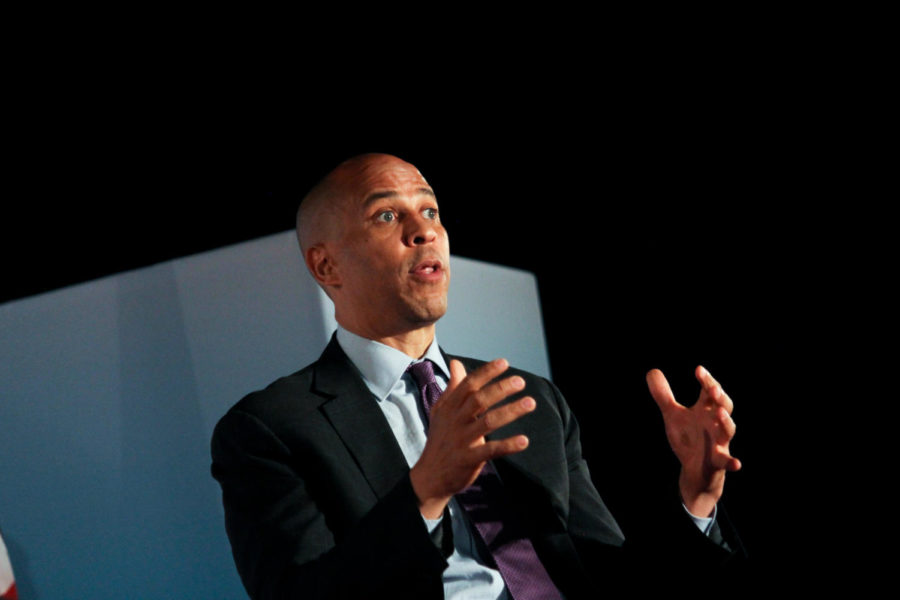Democratic primary features most diverse field of candidates in history
October 16, 2019
The field of candidates still in the race for the Democratic Party’s presidential nomination is the most diverse lineup history has seen.
Among the top candidates — those who qualified for Tuesday’s debate — the majority are not white men, which is the race and sex of every president in American history, other than Barack Obama.
The debate stage featured four women — two of whom are not white — three men of color, an openly gay man and the first major Jewish candidate for president in American history.
Kelly Winfrey, assistant professor of journalism and coordinator of research and outreach at the Carrie Chapman Catt Center for Women and Politics, said she believes President Donald Trump’s “racist” and sexist” remarks mobilize people to “say no” to that style of rhetoric.
“And that, I believe, was largely responsible for the diversity in the congressional races and races for state legislature in the 2018 cycle,” Winfrey said.
The 2018 midterm elections saw the most women elected to Congress in American history, with 25 women senators taking office in the wake of the elections and 102 women winning races for the U.S. House of Representatives.
Despite the diverse field of presidential candidates and the most diverse Congress in American history currently in session, Winfrey said “We’re still going to see a lot of straight white men run.”
Former Vice President Joe Biden currently leads the field of Democratic hopefuls nationally with 29.4 percent support, followed by Sen. Elizabeth Warren with 23.4 percent, according to the RealClearPolitics national polling average.
In terms of fundraising — another measure used to determine the viability of a candidacy — Sen. Bernie Sanders led the Democratic field in the last quarter, followed closely by Warren and then Buttigieg, all of whom would be a first if they were to be elected president — the first Jewish president, woman president and openly gay president, respectively.
“I am interested in what kind of messaging strategies [the] non-straight, white male candidates are using, and how they’re talking about their [differences], and how the media is talking about [those differences],” Winfrey said.
While speaking on Oct. 6 at Iowa State, Sen. Kamala Harris said there is a “donkey in the room,” which is the question of whether a woman of color like herself can be elected president.
The senator addressed the hypothetical question by saying Iowa has the power to show the country “it is possible,” touching on the victories Obama and Hillary Clinton had in the Iowa caucuses that sprung them toward winning the Democratic nomination in 2008 and 2016, respectively.

















